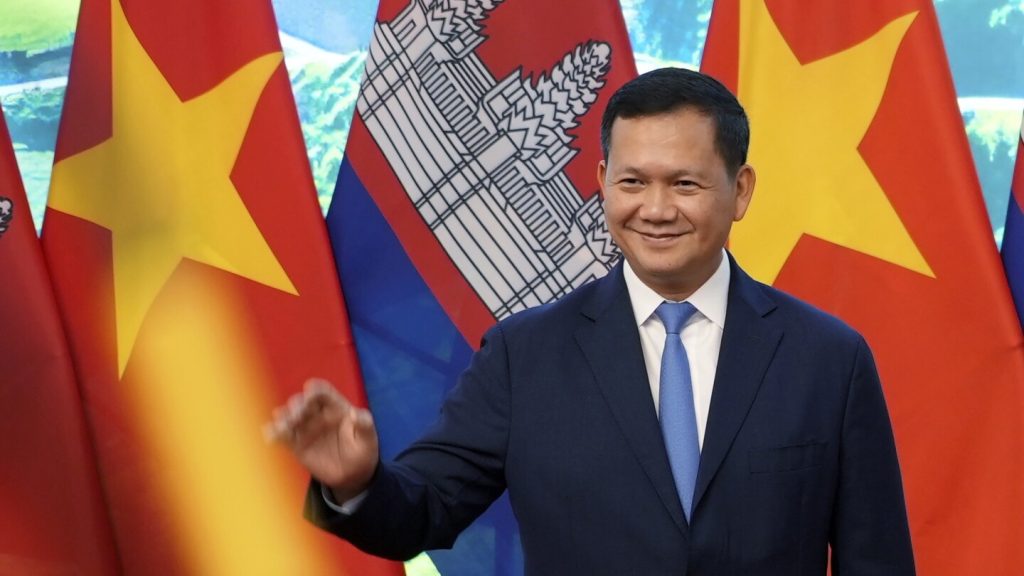Cambodian Prime Minister Hun Manet has announced that the country will be withdrawing from a development agreement with neighboring Vietnam and Laos. This decision comes in response to protests from critics who argue that the agreement was benefiting foreign interests, particularly in terms of land concessions in border areas with Vietnam. The issue of land concessions is highly sensitive due to Cambodia’s historical antagonism toward Vietnam. Authorities had arrested 66 people ahead of a planned rally to condemn the Cambodia-Laos-Vietnam Development Triangle Area (CLV-DTA), with many of them later released but still facing charges. The agreement, formalized in 2004, aimed to promote cooperation on trade and migration in the northeastern provinces of Cambodia and border areas in Laos and Vietnam.
Critics on social media have raised concerns about the agreement, accusing the government of ceding territory to foreign countries. In response, Prime Minister Hun Manet denounced these critics as extremists who were using the issue to attack the government and confuse the public. He highlighted the achievements that Cambodia has made in the past 25 years in developing the four provinces involved in the agreement. Despite these achievements, the government has decided to withdraw from the agreement in order to address people’s concerns about territory and prevent extremists from exploiting the situation for their benefit. This decision reflects the government’s effort to protect its citizens and prevent misinformation from spreading.
The Cambodian government has faced criticism in the past for silencing critics and political opponents. Prime Minister Hun Manet took office last year after his father, Hun Sen, ruled the country for four decades. However, there has been limited progress in terms of political liberalization under his leadership. The decision to withdraw from the development agreement with Vietnam and Laos may be seen as a response to growing public discontent and pressure from critics. By addressing concerns about territorial integrity and preventing extremists from manipulating the situation, the government aims to demonstrate its commitment to protecting the interests of its citizens and maintaining national sovereignty.
The announcement of Cambodia’s withdrawal from the development agreement with Vietnam and Laos comes amid ongoing tensions in the region. The issue of land concessions and border disputes has long been a source of tension between Cambodia and Vietnam, with historical animosity playing a significant role in shaping public sentiment. The decision to pull out of the agreement may have broader implications for international relations in Southeast Asia, particularly in terms of trade and cooperation. It remains to be seen how this decision will impact the relationship between Cambodia, Vietnam, and Laos, and whether it will lead to further diplomatic challenges in the region.
Overall, the withdrawal from the development agreement reflects the complex political dynamics in Cambodia, as well as the broader issues of territorial integrity and national sovereignty. Prime Minister Hun Manet’s decision to address public concerns and prevent extremist groups from exploiting the situation underscores the government’s commitment to maintaining stability and protecting its citizens. However, critics may continue to raise questions about the government’s motives and actions, particularly in light of its past record of suppressing dissent. The impact of this decision on Cambodia’s relationship with neighboring countries and on regional stability remains uncertain, highlighting the need for transparent and accountable governance in addressing complex geopolitical challenges.


